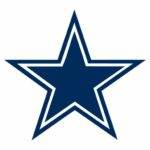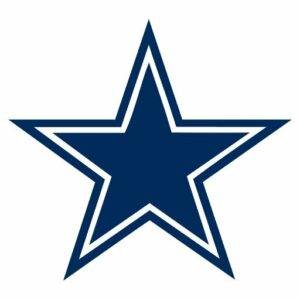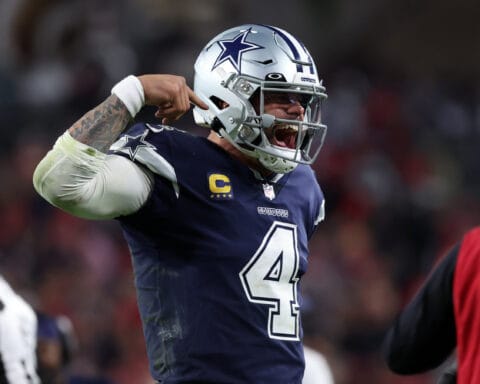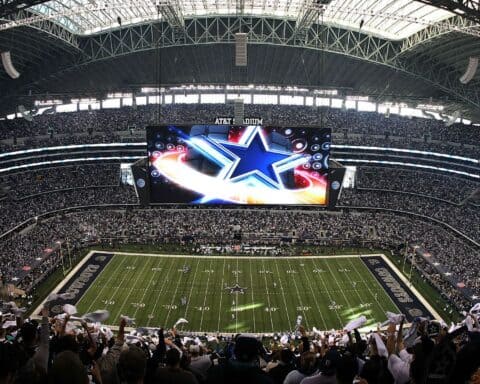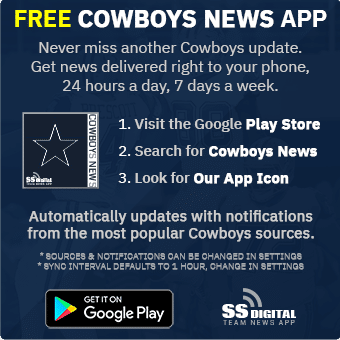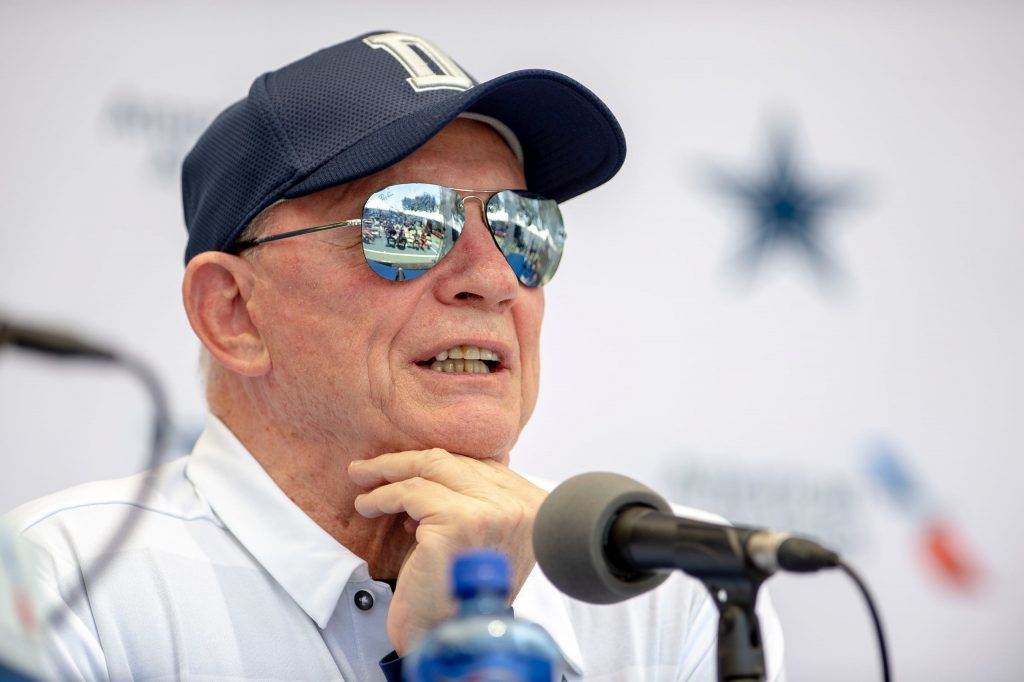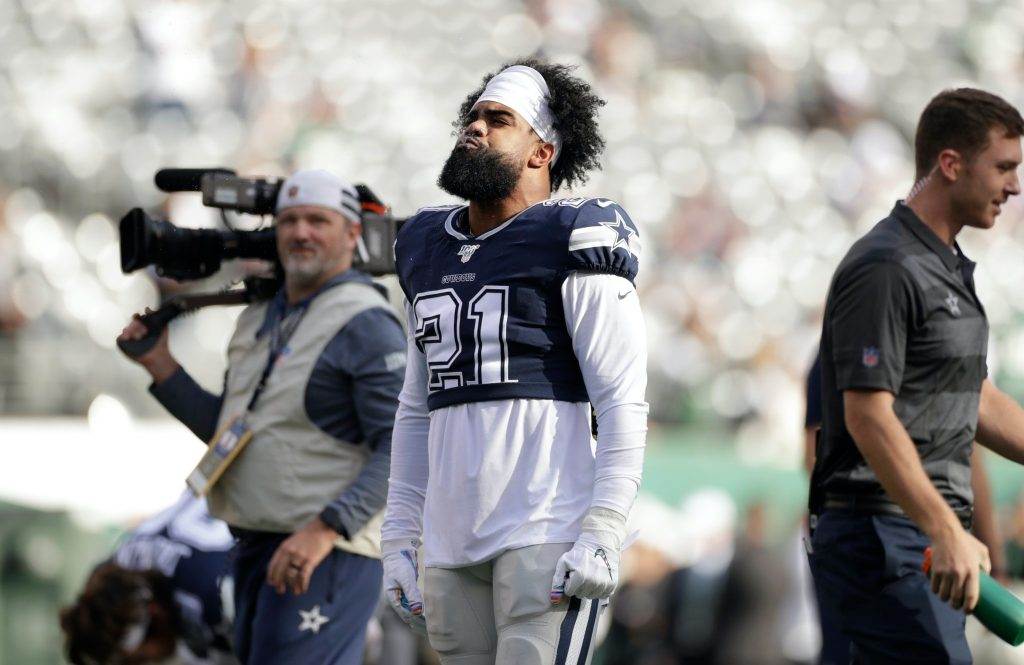The Dallas Cowboys and Quarterback Dak Prescott will not be returning to the negotiating table as the July 15th deadline to extend franchise-tagged players has come and gone. Frankly, regardless of how do you feel about the outcome, at least it’s over until next year. With both sides failing to reach an agreement, Prescott will play the 2020 NFL season under a one-year deal for $31.4 million.
As tempers flare around Cowboys Nation with those in favor of Dak and those against him, we’ve seen every kind of argument by now. That’s just how sports go, especially when discussing a team as popular as the Dallas Cowboys. Let’s talk about one line of reasoning I can’t wrap my head around.
“They didn’t pay Dak Prescott because they’re clearly not sold on him.” For many fans, that’s been the conclusion from this week’s events. I understand where those comments are coming from, but the evidence points toward them being wrong. Think about it, the Cowboys and Dak didn’t sign a contract extension mainly because they didn’t agree on the deal’s term.
Prescott’s camp wanted to sign a four-year deal, following the NFL’s trend of signing quarterbacks to shorter deals. Excluding KC Chiefs Quarterback Patrick Mahomes (a.k.a. The Richest Contract In Sports History), out of the last seven quarterbacks to sign contract extensions of over $30 million per year, only Matt Ryan has signed for an extension longer than four years.
If the Cowboys weren’t sold on Dak, how come they wanted to sign him for five years? How come the biggest issue when trying to get their franchise quarterback to sign was that they wanted to secure his play one more season? It wasn’t really the money, but the fact that they didn’t want to do a four-year deal… It doesn’t really make sense, does it?
Well, allow me to explain the one legit reason why the Cowboys’ decision could make sense in the eyes of the team.
When we talk about NFL contracts, the conversation revolves around average annual value, guaranteed money, term, and signing bonuses. Other than that, we usually don’t dive deeper. If anything, we take a look at the structure of the contract to see how the cap hit is distributed and what potential outs the team has.
But we rarely discuss cash flows. Jason Fitzgerald from Over The Cap wrote about them on his site back in May and it’s a topic we should be discussing more often. How much cash does the player actually receive each year? While guaranteed money and other terms are important for players, how the player gets paid each year might be the most important factor of all.
Below is a table showing the top multiannual contracts in the NFL’s cash flows (excluding Patrick Mahomes’ deal due to how extraordinary it is and how it doesn’t really work as a benchmark). The table shows how much a quarterback has earned in total each year.

Quarterbacks usually sign contract extensions while still on a contract, which explains the “Year 0” shown above. This means what the player gets paid in new money (money specifically from the new contract extension and not the prior deal) as a sort of “prepayment.”
Prescott bet on himself in 2019 and because he played out his contract, instead of starting by looking at “Year 0” cash flows from other quarterbacks, we should be looking at “Year 1” money. This is where things get interesting. Let’s take a look at the year-by-year cash flows from the top quarterbacks beginning from “Year 1.”

As you can see, the NFL’s average “Year 1” cash flow is close to $60M. For Seattle Seahawks QB Russell Wilson, the number rises to over $70M. By tagging Dak Prescott, the $31.4M they’ll pay him in cash this year is not even in the same ballpark as the other top quarterbacks.
Even if they tag him in back to back seasons, the cash flows of the next two years will be $69 million while for the other quarterbacks it’s over $100M.
The reason why cash flows are so important is that players and agents want money now, while owners want to pay later. Simply put, it’s easier for any player to earn the money from earlier years than it is to get to the final years of the contract.
While the Dallas Cowboys are risking prices going up next season if the Houston Texans sign Deshaun Watson to an extension, tagging Dak might make sense in their eyes because of the cash flows.
“If they tag [Dak] this year and do a deal next year at $35M per year for four years, it’s an average of $34.3M over five seasons. As long as Dallas keeps the salary down under $35.9M the five-year value would not exceed $175M or exactly what he would earn taking a five year contract now.” – Jason Fitzgerald from Over The Cap.
This being the reason why Jerry and Stephen Jones feel confident about letting Prescott play under the tag makes way more sense than the common theory of them “not being sold on Dak but still wanting to lock him up for five seasons.”
Of course, that doesn’t mean things will turn out for them. Personally, I strongly disagree with their decision of not extending Prescott and fear it will backfire for them. However, this is the reason I believe the decision makes sense in the front office’s eyes.
The Texans are getting ready to pay Watson and the QB market might skyrocket unexpectedly. Dak has played his cards right up until now. If you think he isn’t aware of how Kirk Cousins paved his way to free agency after playing two consecutive seasons under the tag, you might have another thing coming. Since leaving Washington, Cousins has led the NFL in earnings.
If the Cowboys want to hand the franchise tag Prescott for a third consecutive year, the price tag would be $54M, a number that will be super unfriendly for the salary cap. This would likely allow Dak to test free agency, taking his value to another level when several teams start bidding for his services.
Dak Prescott understands this. He has bet on himself before and has done it yet again by signing the franchise tag in 2020 and won’t hesitate to keep doing it. As long as the Cowboys don’t let Prescott walk in 2022, things should be fine for the Cowboys. But the mere fact that his future in Dallas is in question is concerning for the team’s future.
Note: If you’re interested in learning more about NFL cash flows, I recommend reading Jason’s whole article at Over The Cap.
